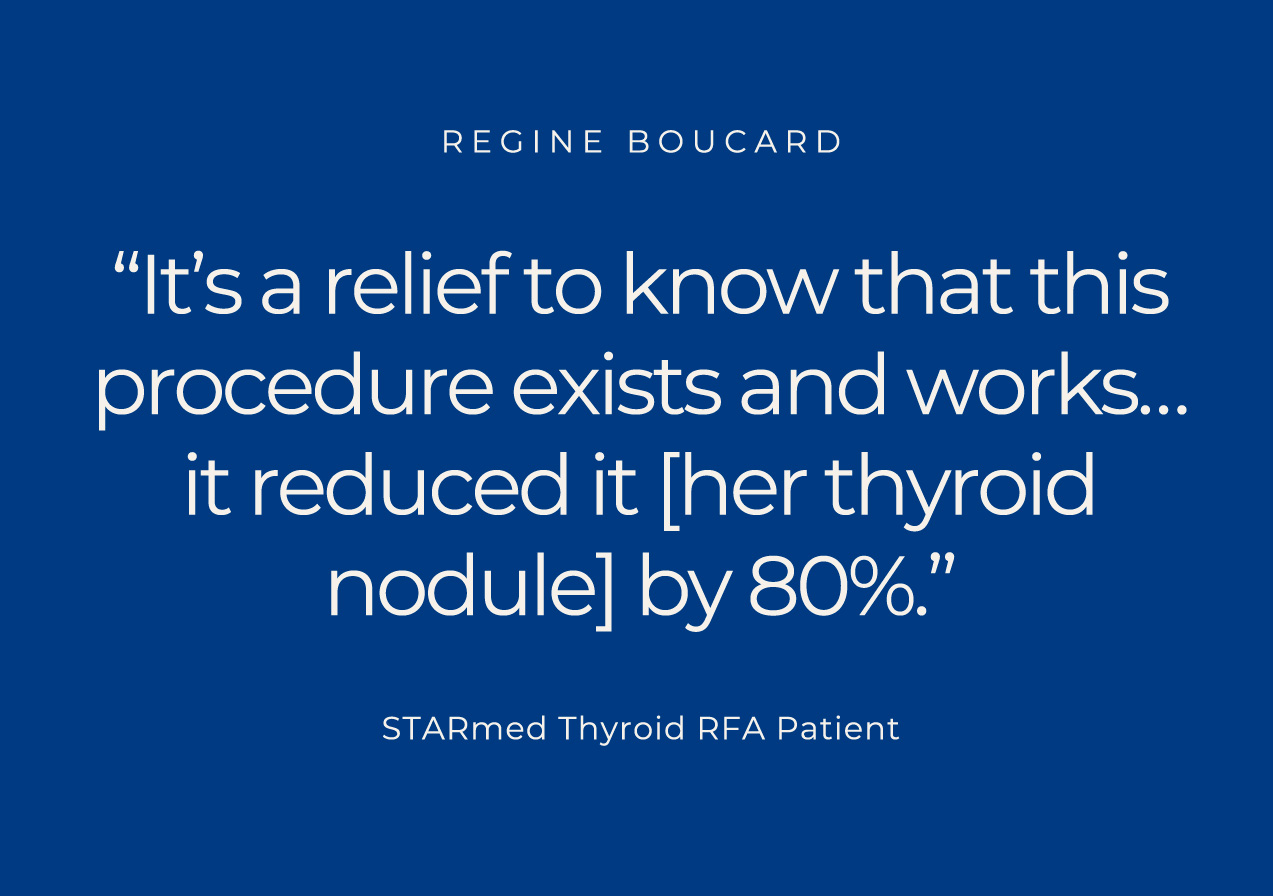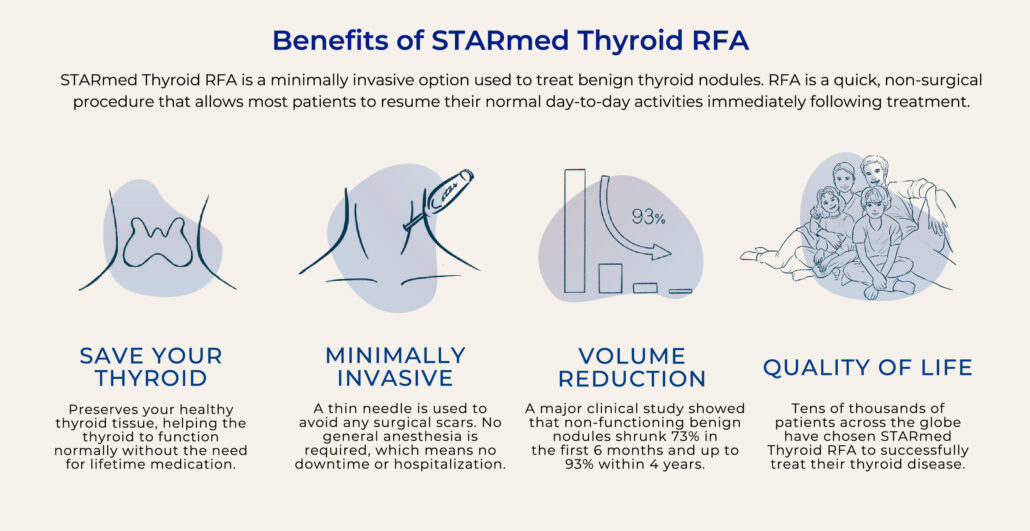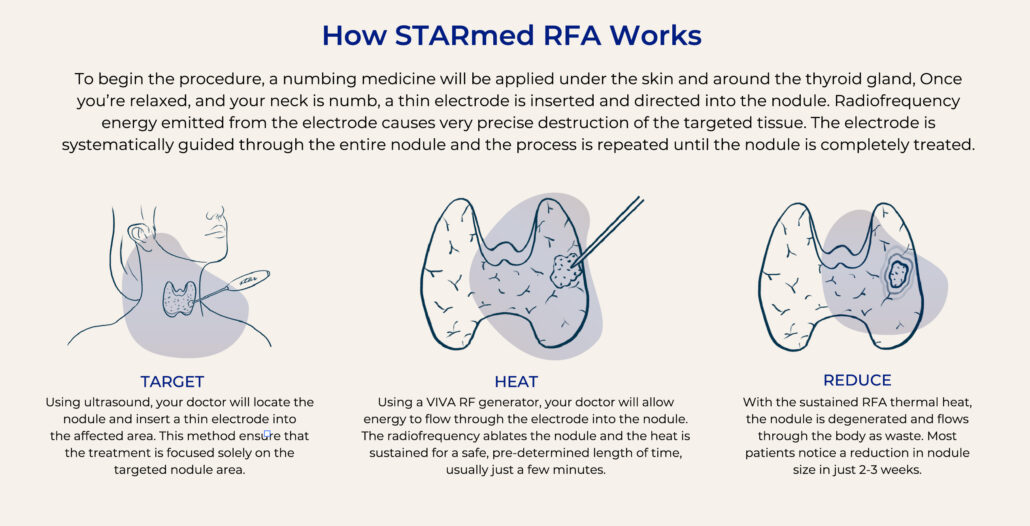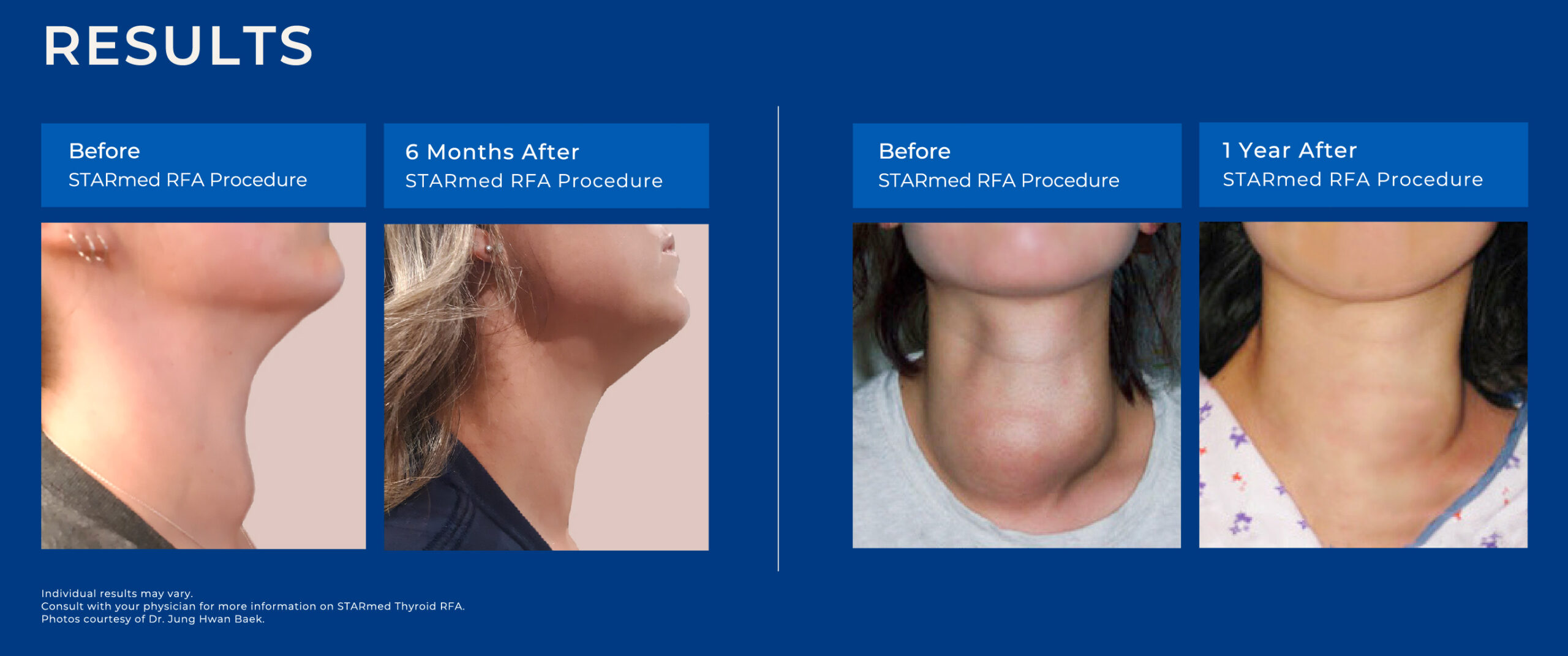THYROID RADIOFREQUENCY ABLATION (RFA)
Non-Surgical Treatment For Thyroid Nodules.
75% of all individuals will have a nodule on their thyroid gland during their lifetime
What are thyroid nodules and who is at risk?
A thyroid nodule is a growth of thyroid tissue or a fluid-filled cyst that forms a lump in the thyroid gland. Thyroid nodules are fairly common. In fact, about 75% of all individuals will have a nodule on their thyroid gland during their lifetime and may not even know it. The problems occur when thyroid nodules grow to a size that interferes with breathing and swallowing or affects the physical aspects of a patient’s appearance that they find unappealing. Thyroid nodules are more common in women than men and often women will experience enlarged thyroids while pregnant.
For the most part, thyroid nodules remain small, pose no threat, and will only require occasional professional monitoring. However, some thyroid nodules, although benign (non-cancerous), grow large and cause breathing difficulties and or cosmetic symptoms. Typically, thyroid surgery and negative side effects associated with such surgery – including permanent scarring or no treatment at all – were a patients’ only option for reducing nodules; but not anymore! Now there is an alternative option to surgery.
Thyroid radiofrequency ablation (RFA) is a fairly new treatment that is successful in reducing thyroid nodules.
Thyroid Radiofrequency Ablation (RFA) for Benign Thyroid Nodules
Thyroid nodules, even when benign (non-cancerous), can grow large and cause swallowing or breathing difficulties, persistent cough, or cosmetic concerns. Learn about thyroid radiofrequency ablation, a non-surgical treatment for thyroid nodules.
What is Thyroid Radiofrequency Ablation (RFA):
Radiofrequency Ablation, also known as RFA, is a minimally-invasive option to treat thyroid nodules. Guided by ultrasound imaging, doctors can precisely deliver radiofrequency waves to heat up thyroid nodules to shrink them. The procedure is conducted in an outpatient setting using local anesthesia that enables patients to resume normal daily activity almost immediately after.

The RFA Procedure: Step by Step What to Expect
About an hour prior to the procedure or upon check-in, we can offer patients a small dose of medicine to help them relax. Patients will sometimes dose off during the procedure, but you can be as awake as you’d like to be! Numbing medicine will be applied under the skin and around the thyroid gland.
Once you’re relaxed and your neck is numb, a thin radiofrequency needle is inserted and directed into the nodule under continual ultrasound guidance. Radiofrequency energy emitted from the tiny active tip at the end of the needle causes very precise destruction of the targeted tissue. The needle is systematically guided through the entire nodule and the process is repeated until the nodule is completely treated.
You will be ready to go home about 30-45 minutes after your procedure and any post-treatment discomfort you may have is easily managed with Tylenol.

Why Choose Thyroid RFA?
Thyroid RFA is an amazing minimally invasive, non-surgical treatment for undesirable thyroid nodules that can make surgery and radioactive iodine (RAI) obsolete for many patients with benign thyroid nodules! This procedure is a quick, safe option that enables patients to resume normal daily activity almost immediately with a minimal recovery period.
The term radiofrequency (RF) refers to an alternating electric current oscillating between 200 kHz and 1200 kHz. Application of Radiofrequency agitates tissue ions as they attempt to follow the changes in direction of the alternating current, thus creating frictional heat around the electrode. Although heat creates immediate damage to the tissue, this is significant only in regions within a few millimeters of the electrode.


Benefits of Thyroid Radiofrequency Ablation
- Preserves your healthy thyroid tissue
- Allows your thyroid to function normally without the need for a lifetime of medication
- Minimally invasive procedure
- Performed under local anesthesia
- Performed as an out-patient procedure, which means no downtime or hospitalization
- Shorter recovery times
- No scarring
- Volume reduction
- Low complication rate
- Worldwide use
- Quality of life

Patient Forms
Patient Portal
MyHealthRecord Patient Portal allows you to manage appointments, view medications, manage health records, pay your bill, and more.
Patient Resources
We have curated an extensive list of resources for a variety of conditions including adrenal diseases, osteoporosis, thyroid diseases, and much more.
Patient Forms & Info
Patient forms and information about insurance, Medicare, referrals and authorizations, copayments, balances, and more.